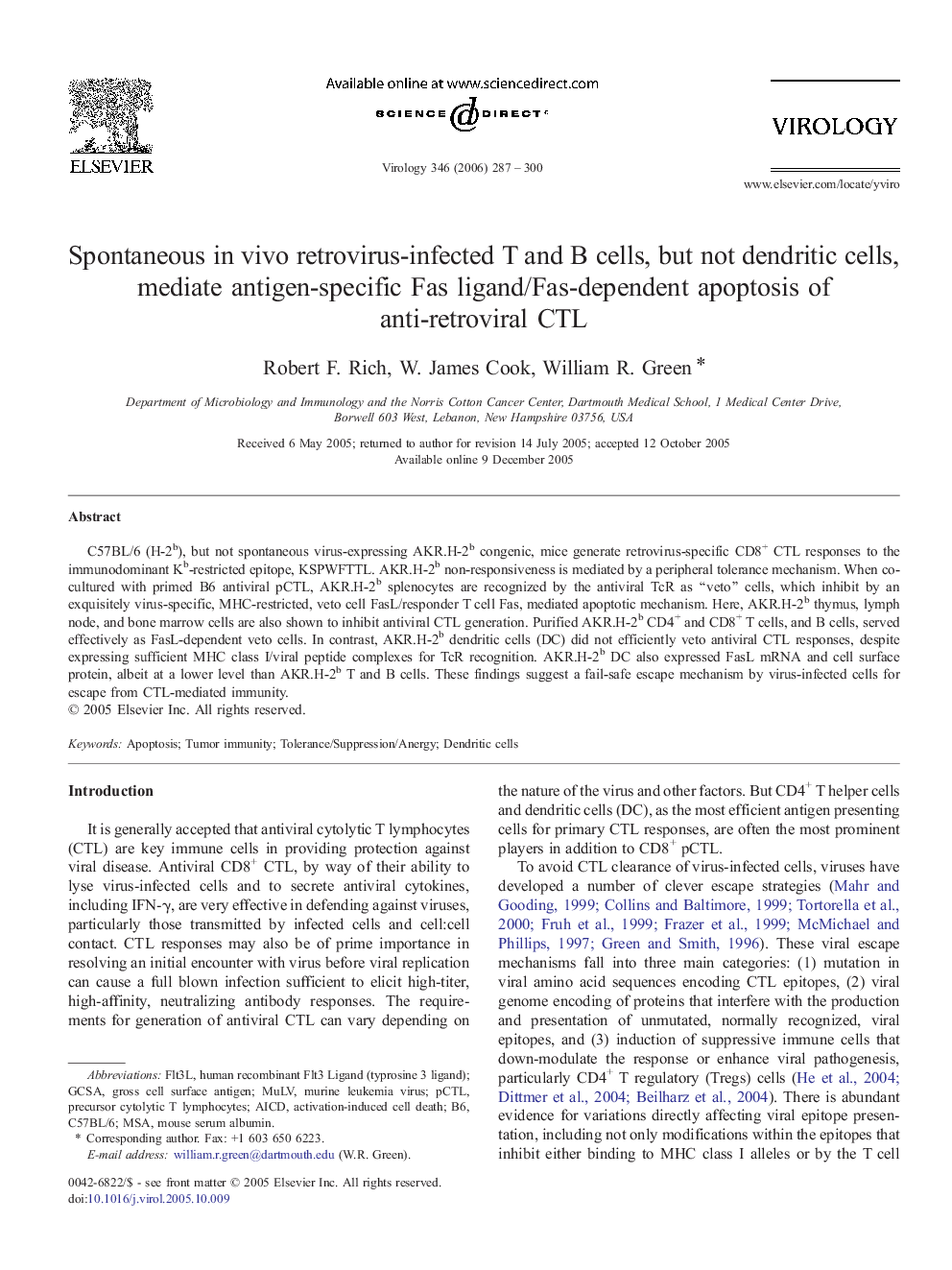| Article ID | Journal | Published Year | Pages | File Type |
|---|---|---|---|---|
| 3426774 | Virology | 2006 | 14 Pages |
C57BL/6 (H-2b), but not spontaneous virus-expressing AKR.H-2b congenic, mice generate retrovirus-specific CD8+ CTL responses to the immunodominant Kb-restricted epitope, KSPWFTTL. AKR.H-2b non-responsiveness is mediated by a peripheral tolerance mechanism. When co-cultured with primed B6 antiviral pCTL, AKR.H-2b splenocytes are recognized by the antiviral TcR as “veto” cells, which inhibit by an exquisitely virus-specific, MHC-restricted, veto cell FasL/responder T cell Fas, mediated apoptotic mechanism. Here, AKR.H-2b thymus, lymph node, and bone marrow cells are also shown to inhibit antiviral CTL generation. Purified AKR.H-2b CD4+ and CD8+ T cells, and B cells, served effectively as FasL-dependent veto cells. In contrast, AKR.H-2b dendritic cells (DC) did not efficiently veto antiviral CTL responses, despite expressing sufficient MHC class I/viral peptide complexes for TcR recognition. AKR.H-2b DC also expressed FasL mRNA and cell surface protein, albeit at a lower level than AKR.H-2b T and B cells. These findings suggest a fail-safe escape mechanism by virus-infected cells for escape from CTL-mediated immunity.
